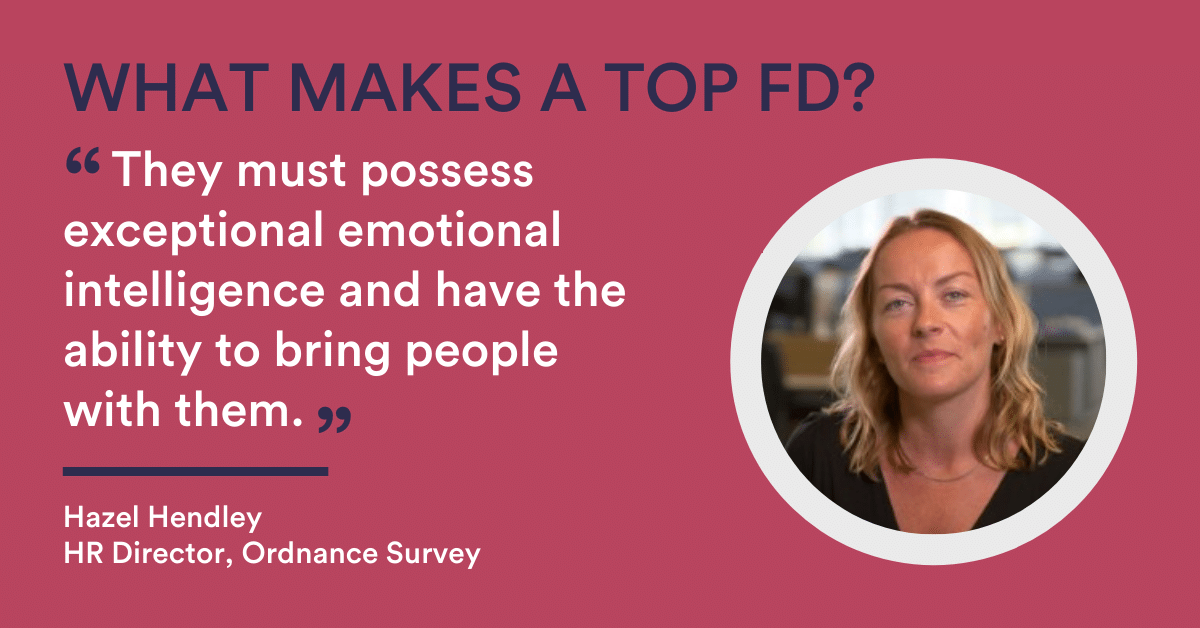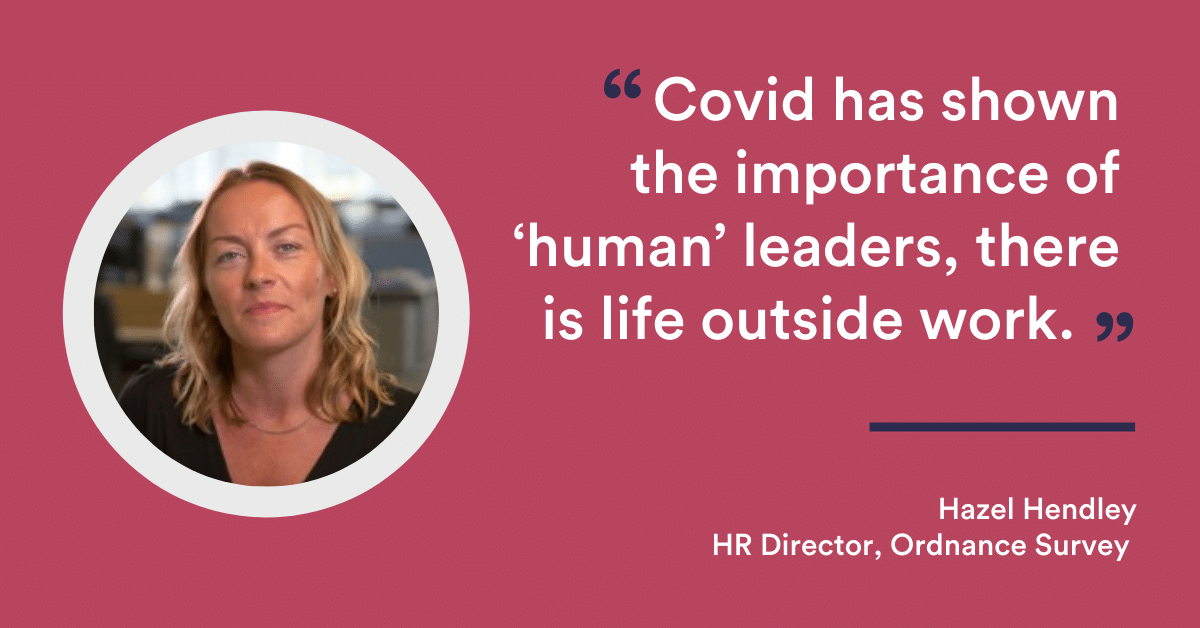What Makes a Top FD: The HR Director’s Viewpoint
In this series of articles, we speak to local business leaders and financial experts to discover the essential qualities and attributes needed to make it as a top Finance Director (FD).
For this instalment we spoke to Hazel Hendley, HR Director (HRD) at Ordnance Survey to get a Human Resources perspective on what makes a top FD.
Hazel has 20 years’ experience delivering business outcomes and transformational change. As a member of Ordnance Survey’s Executive team she focuses on delivering the people solutions critical to the success of the business strategy. This means taking the lead on all aspects of the strategic and operational HR service offering, partnering closely with the FD and CEO.
Essential attributes of an FD
Business acumen, strategic insight and the ability to see the bigger picture – this alongside credibility, great communication skills and the ability to build relationships are all important attributes that enable an FD to successfully lead. These are all attributes we have discussed in previous articles in the series. But what about from an HR perspective – does that differ? We asked Hazel what she thinks are the most important attributes to successfully fulfil the role of FD to maximum effect.
“A keen eye for detail is a must, someone who connects the dots and sees the bigger picture – an FD needs to be able to hone in on that detail whilst having that strategic vantage point.”
Passion for the business purpose and a commitment to sustainable success is essential, along with a desire to contribute to the strategic direction of the business. Hazel says: “They need to not just be able to produce forecasts and projections but really want to input and advance commercial success.”
In addition to the key skills mentioned above, Hazel concurred with our previous interviewees who advocated excellent people skills, enabling an FD to communicate effectively with any team member across the company. In addition, Hazel says: “They must possess exceptional emotional intelligence and have the ability to inspire and bring people with them.”
As a leader, they must also be a brilliant coach; able to support, develop and engage with employees. This extends, Hazel says, to having the ability to build trust with employees, board members, customers and senior leaders.
HRD and FD; Working cohesively
For an HR Director, it’s crucial to have a close relationship with the FD. This means regular opportunities to connect: “We hold purposeful fortnightly meetings” says Hazel, “with an agenda focusing on key concerns, head count, budget and opportunities to improve outcomes.”
At Ordnance Survey, there is a ‘Relationship Triangle’ between the CEO, FD and HR Director, with the FD and HRD acting as key advisors to the CEO.
A relationship with healthy conflict can also be beneficial notes Hazel; often the HRD and FD see the world through different lenses, which gives a good, balanced overview for the CEO.
HR is more than “transactional”
Like many good relationships, that of the HRD and FD has evolved over the years. Hazel felt that in in the past, finance teams may not have seen HR as an equal in the partnership to achieve the best business outcomes. Often it was a case of lip service being paid to the benefit of HR and finance operating as a joined-up function, and providing support operationally.
Now, she says, this has evolved: “A mature FD will harness insight from good HR teams and recognise that HR is more than a transactional function.”
She continues: “Respect between professions has grown and now we partner on key business initiatives.”
Of course there has been and still are challenges to overcome. During her career Hazel has faced many challenges when working alongside FDs. Often the biggest the tug of war between finance and HR is balancing cost saving at a detriment to longer-term engagement and retention for employees, i.e. looking at the bigger, longer-term picture.
In addition, Hazel says it can be a challenge encouraging business leaders and FDs to embrace an inclusive/agile working environment.
Lessons learnt from lockdown
The role of HR has perhaps never been more important than over 2020 and 2021 while dealing with the challenges and implications of COVID-19. How has this period impacted on the FD, in a HR Director’s opinion, and what have been the lessons learned?
“Covid has shown the importance of being ‘human’ leaders, as our working life has been integrated into our home life” says Hazel. This has enabled a new kind of rapport between team members and offered a great opportunity to build a truly inclusive team.
Agile working has become the ‘norm’: “It’s not solely about time recording/presenteeism anymore” says Hazel. “It’s all about outcomes – for both the business and the customer.”
Looking to the future and taking these lessons learnt forward, the role of the FD must continue to evolve over the next few years as workplaces themselves evolve.
Hazel predicts that we will continue to see drives to retain talent, with a shift to agile working. Leaders will need to learn how to lead inclusively/collaboratively in this new way of working and not have that divide between working-from-home and office employees.
In the short-term, people’s resilience may be lower after a tough year so leaders will have to continue to focus on wellbeing and perhaps increased sickness absence. Hazel says: “The FD and rest of the senior leadership team needs to model the behaviours that will enable us to build back stronger, focusing on outcomes and being more human.”
Hazel’s top tips to aspiring FDs
– Be curious; you never stop learning.
– Fully understand the business products/services and customers; become ‘business savvy’ to enable you to add genuine value to the business.
– Be generous with knowledge and educate the wider business from a finance perspective – without intimidating them with jargon and spreadsheet macros!



